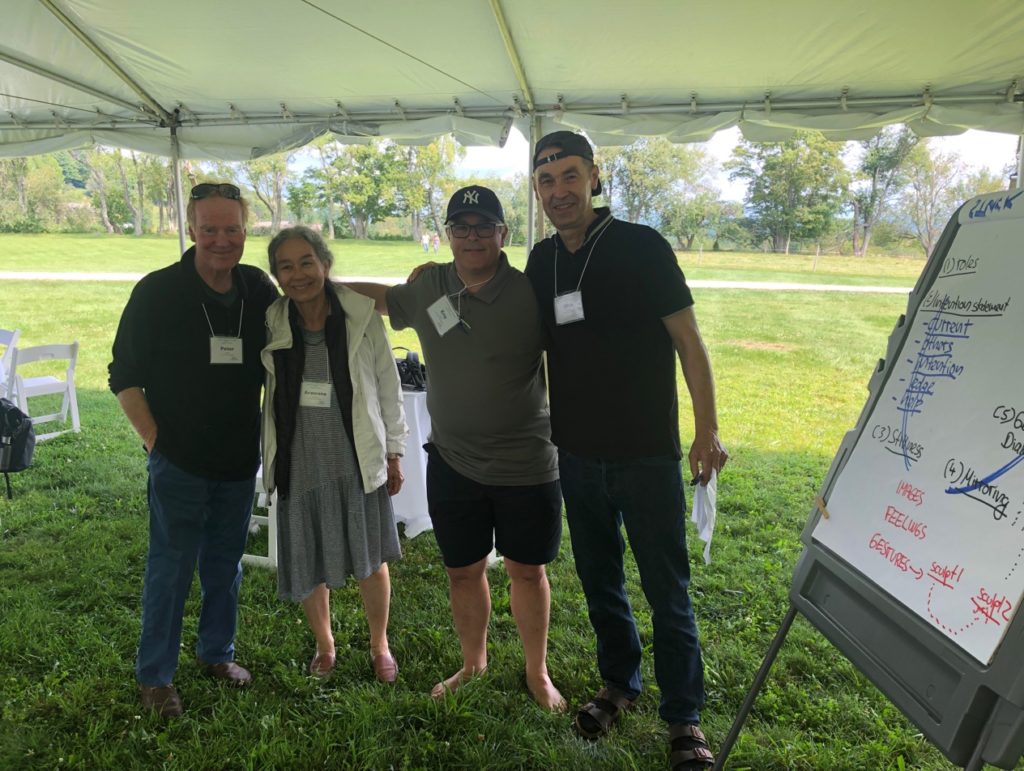At Awesome Journey, one of the key learnings that we teach from Peter Senge’s book, “The Fifth Discipline,” is that there are three roles inside being a Powerful Leader – Steward, Designer, and Teacher.
Steward You create clarity in what you CARE about. What you CARE about gets your time!
Designer You focus on designing intentional conversations to support the things you CARE about.
Teacher You are intentional about creating learning experiences and learning environments to support your people in being effective for the things that the organization CARES about.
Recently, I was in the presence of three Master Teachers. In August, I was in a four-day leadership course with Peter Senge, Otto Scharmer and Arawana Hayashi in Stowe, Vermont. One of my key learnings that I took away from our four-day conversation on leadership was seeing Master Teachers teach. Here are some of the key principles they taught me about being a Master Teacher:
- Create an environment where learning is safe to be vulnerable. Master Teachers encourage you to say, “I don’t know how to solve this issue and I need support to move forward”. When you embrace a beginner’s mind, new possibilities can emerge.
- Ask thoughtful questions to disrupt your current mindset. This gets you to think differently about a challenge or issue you are struggling to create new future possibilities.
- Create space for learning through “Dialogue Conversations”. When we embrace learning in community, cool breakthroughs start to occur! Dialogue conversations allow diverse thinking to be present to allow new possibilities to emerge.
- Be committed to your student’s winning! Winning means that your students are learning from their experiences (success & failures). By challenging your students to debrief their experience by observing how their learning has impacted their ability to lead.
Ask yourself “has the student’s learning expanded their…”
-
- Thinking
- Awareness to connect with others
- Influence to impact others to be in action
- Expertise to generate new possibilities
- Relationship to problems:
- Perspective from seeing problems as something is wrong/ needs to be fixed to seeing problems as an invitation to discover what is missing and what is emerging!
Your Leadership Challenge: Be a teacher to your team this week by applying one or all of the four principles of a Master Teacher.
Our four-day Classroom outside under this tent! From left to right: Peter Senge, Arawana Hayashi, Me and Otto Scharmer.


